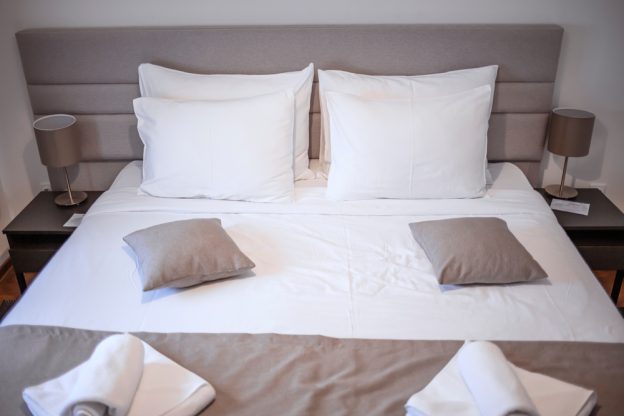The week beginning 18th April 2022 in the UK is commonly known as being national stop snoring week. The whole week is dedicated to trying to get the annoying snorer in your life to kick the habit once and for all. The bed you sleep on, be it a high sleeper bed or a deluxe Limelight bed, does not have a direct effect on why or how you snore. There is much to be said about why we snore and how we can stop doing it.
It is advised that around 15 million people in the UK snore, with a further 30 million people being affected by someone who snores in their life. Statistically, it is advised that men snore louder and more often than women and people aged between 50-60 years old snore more often.
In this blog, we will highlight why people snore, what it could mean and ways to stop doing it.
Why Do You Snore?
When it comes to why someone snores; there can actually be multiple reasons. Identifying why you might be snoring is actually extremely effective as you can then conjure different ways to stop this potentially annoying pastime. Some of the reasons you might be snoring can include:
Alcohol, Smoking or Medication- Alcohol, smoking or certain medications such as Diazepam, can significantly relax your muscles leading to the resulting loud snoring. Snoring mainly occurs when the muscles in your airways relax and start to vibrate as air passes through.
Blocked Nose or Sinus Problems– If your airways are blocked or if you have a runny nose, this might result in snoring. This is because the blocked airways make it difficult or virtually impossible to inhale creating a vacuum in your throat which in turn leads to, as you might have guessed by now, snoring.
Being Overweight or Generally Out of Shape– If you have fatty tissue or generally poor muscle structure; you might be a snorer because of this. However, it might surprise you to know that you don’t always have to be overweight to have a weight related snore problem. If you carry excess weight specifically in your neck or throat, this can in turn make you snore.
Your Age– Whilst you can change some of the reasons you snore, some reasons are completely out of your control. One such reason is your age. As you become older, your throat becomes narrower and the muscle tone in your neck decreases. This, rather unsurprisingly, results in snoring.
Sleep Posture– Certain ways you sleep can result in snoring. Sleeping on your back, which coincidentally is one of the popular sleeping positions in the UK, can cause your muscles to relax and in turn allows you to snore.
Your General Genetic Makeup– Very much in the ‘you have little control to no control over’ category; your general genetic makeup can make you snore. For example, men have narrower air passages than women which means they are more susceptible to snoring. Additionally, a cleft palate, enlarged adenoids or other physical attributes can increase the likelihood of you being a snorer.
Hereditary– While the act of snoring is not necessarily hereditary, most of the factors, such as the way you are built most definitely are.
What Does It Mean?
You might live with a snorer or you might be one yourself, however, you might never have asked; what does it actually mean?
To put it simply, snoring occurs when the muscles in your throat relax causing tissue to vibrate as air passes through it as you breathe. Whilst the worst effect of snoring is usually annoying your partner and dramatically impacting their sleeping pattern which can be devastating by itself; snoring can showcase issues which are more severe.
Snoring can indicate sleep apnea. Sleep apnea is a serious condition where your sleeping is briefly interrupted multiple times during your nights sleep. General snoring should not affect you during your sleep, however, if throughout the day you are suffering from extreme fatigue and tiredness then this could be a tell-tale sign of you are suffering from sleep apnea.
Ways To Stop Snoring
If you are, or if you know someone who snores, you need not to worry as all hope is not lost. There are a few tried and tested techniques you can use to stop snoring once and for all. This includes:
Ensuring Your Stay Well Hydrated– On average, men and women drink about 15 cups of various liquids a day. This might not seem very important as far as sleeping is concerned but staying well hydrated can drastically improve your quality of sleep. You are dehydrated, secretions in your nose become stickier which can create more snoring.
Opening Your Nasal Passages– As you might have already guessed, opening your nasal passages can help you stop snoring. There are many ways to do this. Some of which include taking a hot shower before bed or using a nasal spray.
Focus On Hygiene– Bad sleep habits, such as working long hours without sufficient rest or not changing your bed sheets often enough, can result in your becoming a snorer.
Changing The Pillow– Following on nicely regarding having good sleep hygiene and habits, allergens can live on your pillow which can enlarge your throat due to an allergic reaction. The enlarged airways can not only make it hard to breathe; but you will probably start snoring as a result of this. Frequently changing your pillow can be a great way of combating an allergen build up.
Changing Your Sleep Position– If you sleep on your back, statically speaking you are more likely to snore. If this is your preferred sleeping position, you might want to adopt a new sleeping position.
Lose Weight– As previously alluded to, being overweight can have a negative effect on you being a snorer. As such, you might want to consider losing weight to combat the snoring habit.
Stop Drinking Alcohol (Especially Before Bed)– Sedatives and alcohol relax your muscles leading to snoring. This point we have already touched upon. To decrease the likelihood of you snoring, you should stop drinking alcohol as frequently. This rings especially true for drinking alcohol 3-4 hours before bed as this has a much worse effect.
Contact Us
Are you looking at ways to improve your sleeping arrangements and say goodbye to snoring in your life once and for all? Please get in touch with us.
While you are at it, why don’t you check out our fantastic range of products which include sleek metal double bed frames and stylish day beds.


